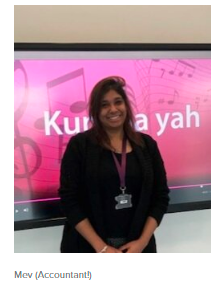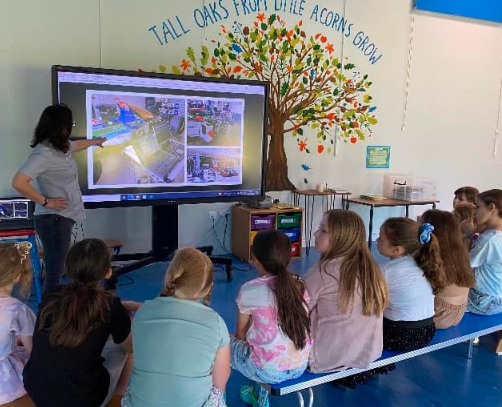Science, Technology, Engineering and Maths (STEM)
Maths at South Kilworth
At South Kilworth C of E Primary our aim is to develop lifelong mathematicians who are curious and use maths skills as a foundation for understanding the world around them. It is essential to everyday life, critical to science, technology and engineering and necessary for financial literacy and most forms of employment. We want pupils to recognise the importance of having a deep understanding which is achieved by investigating and exploring mathematical concepts.
We use the White Rose scheme as a basis to plan our daily mathematics lessons. These schemes provide teachers with exemplification for maths objectives and are broken down into fluency, problem solving and reasoning, key aims of the National Curriculum. We also use Active Maths to ensure that we teach some of our sessions through physical activities. Children are encouraged to use sentence stems to help them explain their thinking.
The National Curriculum aims to ensure that all pupils:
-
become fluent in the fundamentals of mathematics, including through varied and frequent practise with increasing complex problems over time, so that pupils develop conceptual understanding and the ability to recall and apply knowledge rapidly and accurately
-
reason mathematically by following a line of enquiry, conjecturing relationships and generalisations and developing an argument, justification or proof using mathematical language
-
can solve problems by applying their mathematics to a variety of routine and non routine problems with increasing sophistication, including breaking down into a series of simpler steps and persevering in seeking solutions
Our maths teaching and learning is underpinned by the following key messages:
-
Everyone can learn maths
-
Mistakes help us to learn; never be afraid to make mistakes
-
Asking great questions deepens our understanding
-
Maths is about being creative and making connections
-
Maths is about being fluent and flexible
-
Understanding maths is much more important than how fast you are
-
The steps that you take when finding the answer are just as important as the answer itself.
(Messages developed by Jo Boaler Professor of Mathematics Education, Stanford University)
Alongside daily mathematic sessions morning maths activities are used to revisit previous learning.
Multiplication Tables Check
From 2019-2020 academic year onwards, schools in England will be required to administer an online multiplication tables check (MTC) to year 4 pupils. The purpose of the MTC is to determine whether pupils can recall their times tables fluently, which is essential for future success in mathematics. To support children with their multiplication practise we use ‘Times Table Rockstars’ as an online and fin learning platform.
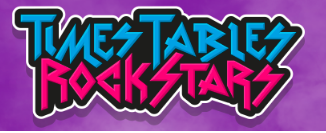
The White Rose coverage for each class can be found below:
Children in Reception begin with the Mastering Number Programme
Mastering Number Yearly overview
Year 1/2
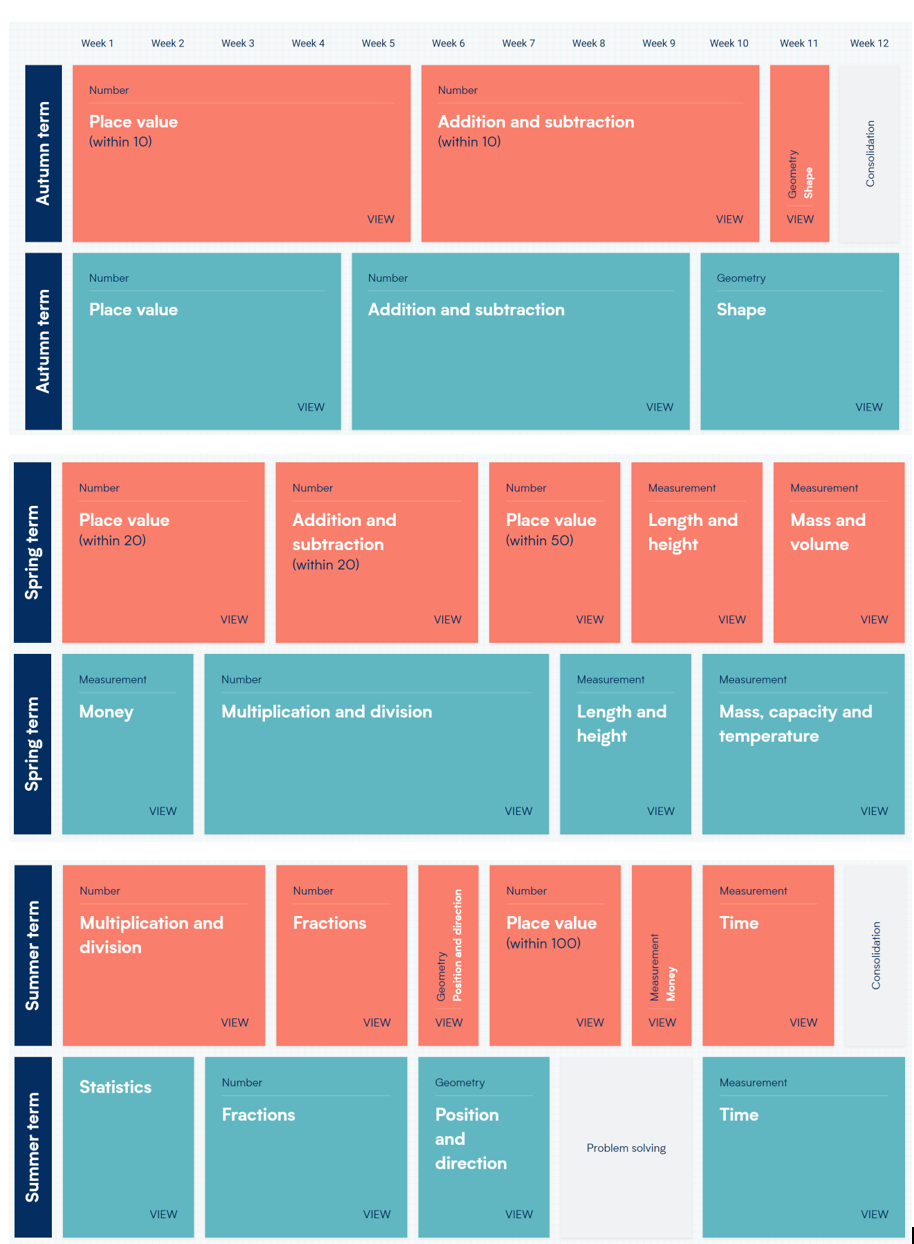
Year 3 / Year 4
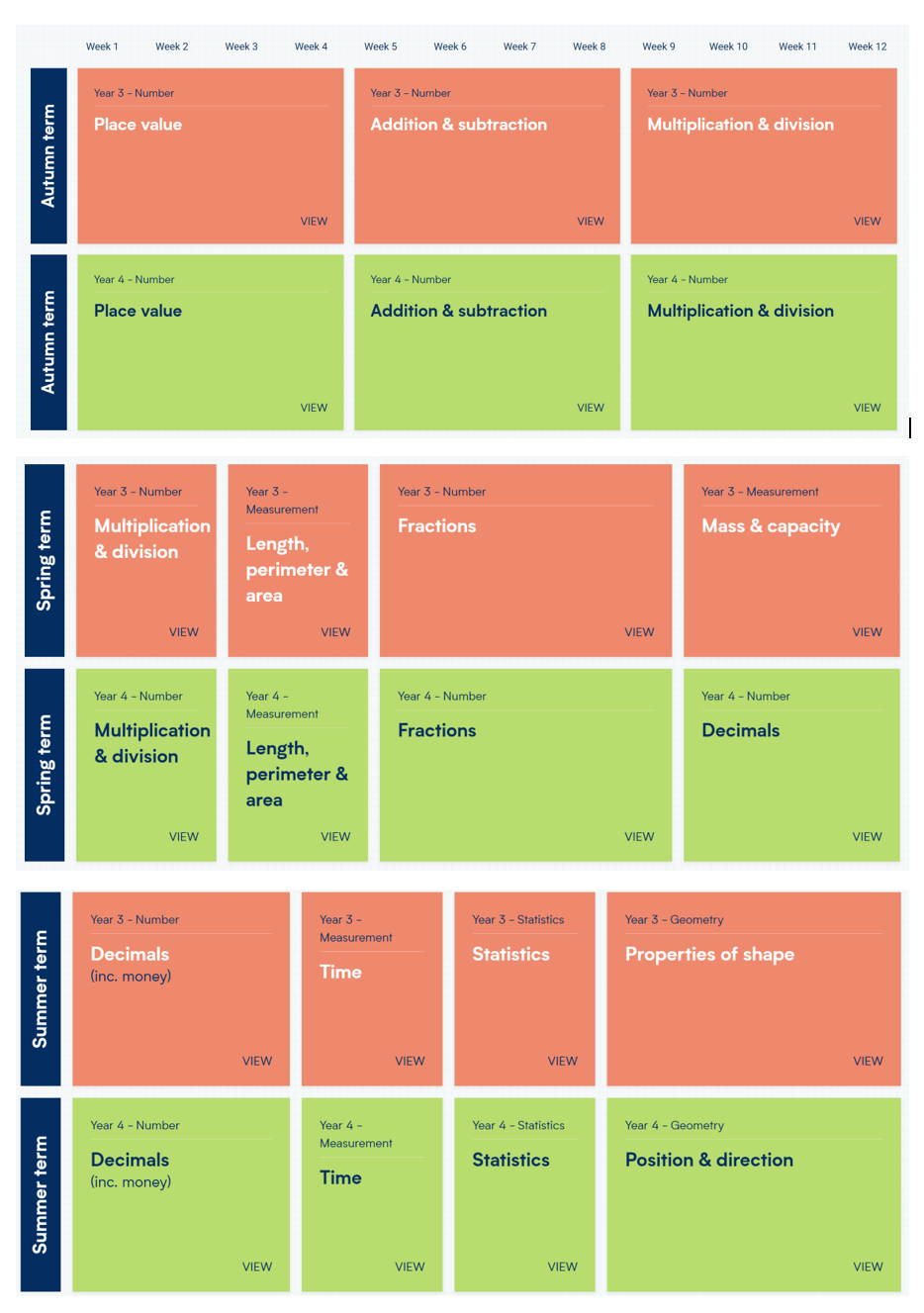
Year 5 / Year 6
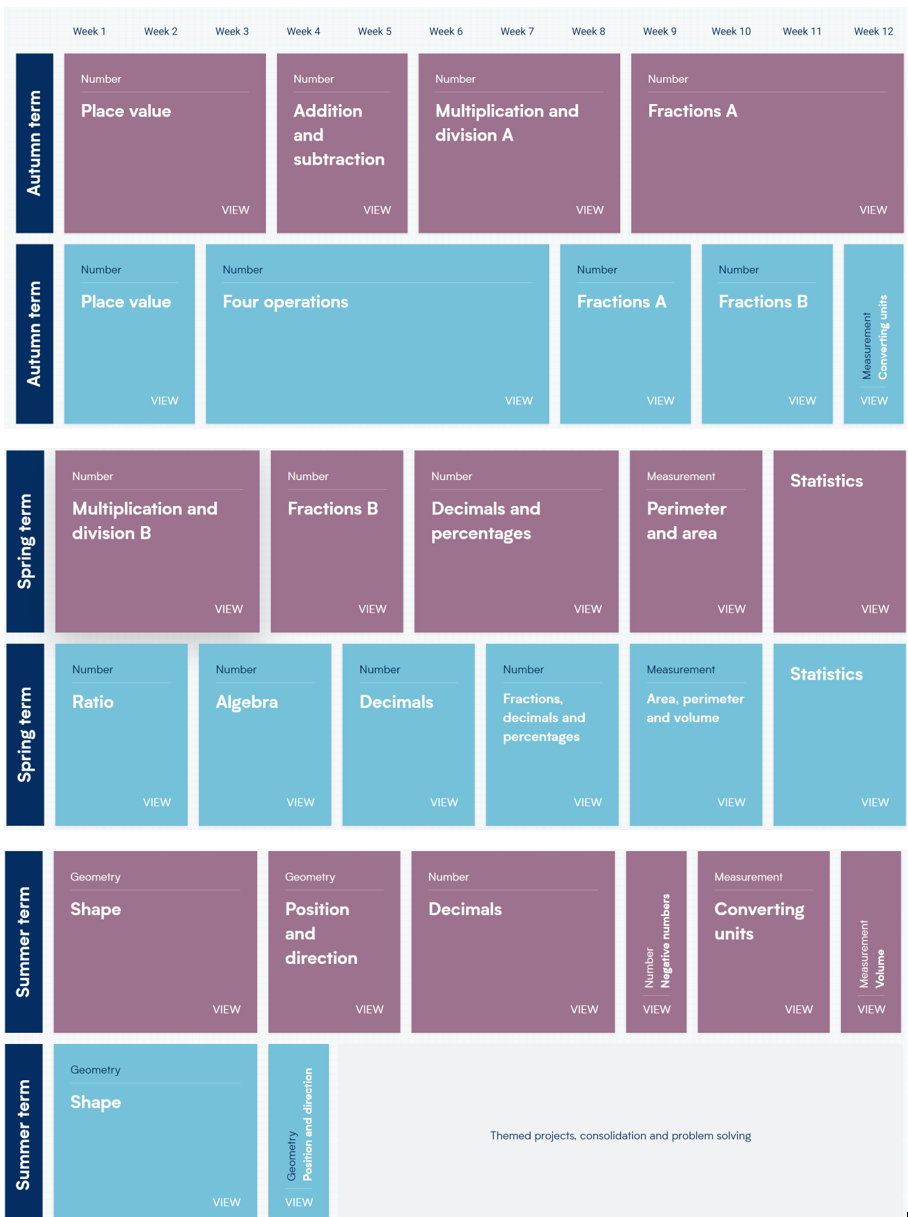
Science
Every child has a natural curiosity about the way the world works; science lessons show us how to get answers to some of the questions that they ask.
Children learn about animals, plants and their bodies e.g. the importance of a varied diet and exercise for good health. Children also learn about materials such as wood, paper, rock and how they can be used and changed. They also learn that some can be mixed and separated. They learn about simple ideas in physics, taught through experiences with electricity, forces, light and sounds. Children also learn some basic facts about the Sun, Earth and Moon.
Through work in these areas children are taught about scientific enquiry. Children and teachers pose questions and work together to find answers by investigating and recording data. They think about their tests and compare results and patterns. Children then communicate their work and their results in scientific language, drawings, tables and graphs. Learning is revisited to enable children to recall key scientific facts.
Design and Technology
Design and Technology gives children the opportunity to investigate how well familiar objects work and how to solve practical problems skilfully, creatively and with imagination. Children are taught to look at products to see how they work and how they are used, and ask the views of people who use them. They practice practical skills and tasks such as cutting, joining, fixing and connecting and they design and create their own products, using what they have learned.
MATHS IS AN IMPORTANT LIFE SKILL
July 2022
In July 2022 we were visited by the inspirational Charlie Francis, an engineer involved in motorsport.
She talked about the maths and science skills she uses and the things she noticed as a female following the career pathway to become an engineer.
We found out about what an engineer is and how engineers designed and developed seat belts, washing machines and cars.
A real inspiration to our children, hopefully encouraging many of them to follow Science, Technology, Engineering and Maths subjects as they get older. A huge thank you to Charlie for providing this opportunity.
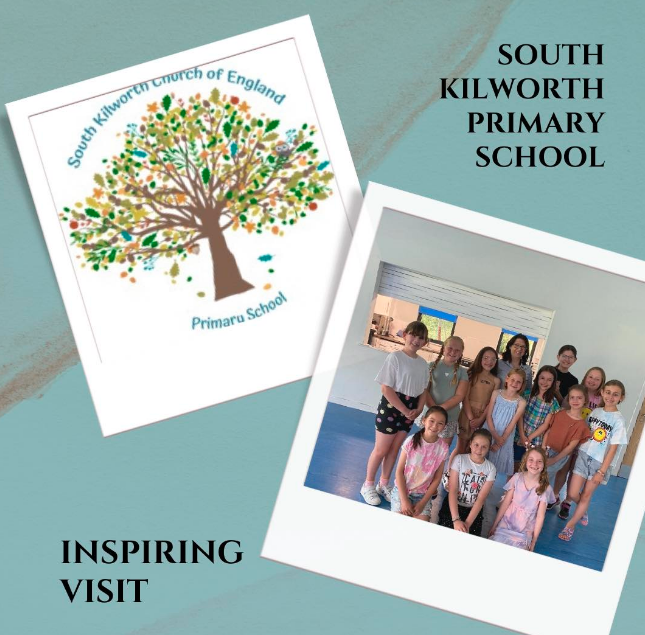
April 2021
Captain Tom - 100 Challenge. On Friday 30th April we honoured Captain Tom (on what would have been his 101st birthday) by completing challenges based around 100.
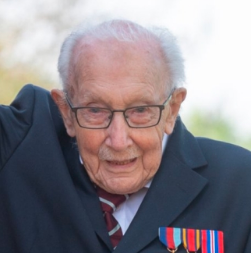
His simple message of hope – “Tomorrow will be a good day” – inspired millions around the world and brought comfort and joy to so many during the pandemic.
In March 2020 Natwest visited our school and completed MoneySense Workshops teaching the children about buying, selling and budgeting!

In February 2020 we had visitors who talked about maths in their profession.
